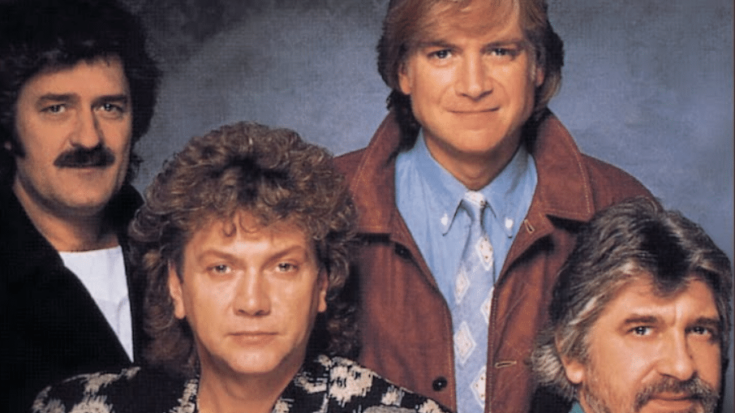8 Tracks from 1970 That Bridged the Gap Between the 60s and 70s

via The Moody Blues / YouTube
As the 1960s ended, rock music began to change. In 1970, several songs helped connect the styles of the ’60s with the new directions of the ’70s. These tracks combined old influences with fresh ideas, marking a shift in the music scene.
1. “Mississippi Queen” – Mountain
Released in early 1970, “Mississippi Queen” introduced Mountain’s powerful sound. The song’s heavy guitar riffs and strong rhythm made it a standout track. Its energetic style was different from the more mellow rock of the previous decade.
Wikipedia
The song became Mountain’s most successful single, reaching number 21 on the Billboard Hot 100. Its blend of blues and hard rock influenced many bands that followed. The track’s raw energy captured the changing mood of rock music at the time.
2. “Roadhouse Blues” – The Doors
“Roadhouse Blues,” from The Doors’ album Morrison Hotel, showcased a return to blues roots. The song’s driving rhythm and gritty vocals stood out. It became a favorite at live shows, highlighting the band’s versatility.
Though it didn’t top the charts, the song received significant radio play and remains a classic. Its straightforward style contrasted with the more experimental sounds of the late ’60s, signaling a new direction for the band.
3. “Question” – The Moody Blues
“Question” combined acoustic guitar with orchestral elements, reflecting The Moody Blues’ signature style. The song’s structure, shifting between fast and slow sections, added depth. Its lyrics touched on themes of doubt and searching.
The track reached number two on the UK charts and number 21 in the US. It exemplified the band’s ability to blend rock with classical influences, bridging the sounds of two decades.
4. “Black Dog” – Led Zeppelin
Although released in 1971, “Black Dog” was recorded in late 1970. The song’s complex rhythm and call-and-response vocals showcased Led Zeppelin’s innovation. Its heavy sound marked a shift from the blues-based rock of the ’60s.
The track became one of the band’s most recognizable songs. Its influence is evident in the development of hard rock and heavy metal genres. The song’s structure and energy captured the evolving rock landscape.
5. “Ramble Tamble” – Creedence Clearwater Revival
“Ramble Tamble,” the opening track of Cosmo’s Factory, blended rock with extended instrumental sections. The song’s shifting tempos and moods reflected the band’s growth. It stood out from their earlier, more concise hits.
The track highlighted CCR’s willingness to experiment while maintaining their rootsy sound. Its mix of styles mirrored the transitional nature of rock music in 1970. The song remains a testament to the band’s versatility.
6. “Future Games” – Fleetwood Mac
“Future Games” marked a new era for Fleetwood Mac, introducing a softer, more melodic sound. The song’s dreamy atmosphere and layered instrumentation differed from their earlier blues style. It showcased the band’s evolving musical direction.
The track didn’t achieve major chart success but became a fan favorite. Its introspective lyrics and gentle melodies reflected the changing tastes of rock audiences. The song foreshadowed the band’s later mainstream success.
7. “After the Gold Rush” – Neil Young
The title track of Neil Young’s 1970 album, “After the Gold Rush,” featured piano-driven melodies and reflective lyrics. The song’s sparse arrangement highlighted Young’s songwriting skills. Its themes of environmental concern and change resonated with listeners.
Though not released as a single, the track became one of Young’s most enduring songs. Its blend of folk and rock elements captured the spirit of the times. The song remains a staple in his live performances.
8. “Southern Man” – Neil Young
Also from After the Gold Rush, “Southern Man” addressed social issues head-on. The song’s electric guitar riffs and passionate vocals conveyed urgency. Its direct lyrics sparked conversations about racism and history.
The track’s bold stance led to responses from other artists, notably Lynyrd Skynyrd’s “Sweet Home Alabama.” “Southern Man” exemplified how rock music could tackle serious topics. Its impact extended beyond the music charts.



















